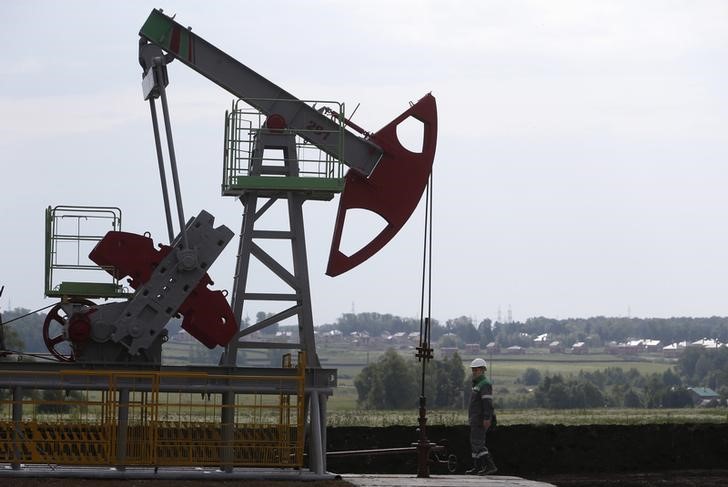Investing.com - Oil prices inched up on Thursday, but held near 7-year lows amid uncertainty about how quickly the global glut of crude is set to shrink.
Oil futures are down more than 10% since the Organization of the Petroleum Exporting Countries failed to agree on output targets last week. As a result, crude prices are expected to remain stubbornly low amid a glut of oversupply on global energy markets.
On the ICE Futures Exchange in London, Brent oil for January delivery tacked on 27 cents, or 0.66%, to trade at $40.38 a barrel during European morning hours. A day earlier, London-traded Brent sank to $39.57, a level not seen since February 2009, before ending at $40.11, down 15 cents, or 0.37%.
Brent oil prices are on track to post an annual decline of 27% in 2015, as oversupply concerns dominated market sentiment for most of the year.
Elsewhere, crude oil for delivery in January on the New York Mercantile Exchange inched up 12 cents, or 0.31%, to trade at $37.82 a barrel. On Wednesday, Nymex futures fell to $36.87, close to levels not seen since August 27, before ending down 35 cents, or 0.93%, at $37.16.
Nymex prices had rallied more than 3% at one point during Wednesday's session after data showed that oil supplies in the U.S. fell for the first time in 11 weeks last week.
The U.S. Energy Information Administration said crude oil inventories declined by 3.6 million barrels last week. Market analysts' expected a crude-stock rise of 252,000 barrels. Despite the drop, total U.S. oil inventories stood at 485.9 million barrels as of last week, remaining near levels not seen for this time of year in at least the last 80 years.
The data also showed that gasoline inventories increased by 0.8 million barrels, below expectations for a gain of 2.2 million barrels, while distillate stockpiles rose by 5.0 million barrels.
U.S. oil futures are down 28% so far this year amid worries over ample domestic supplies. Global crude production is outpacing demand following a boom in U.S. shale oil and after a decision by OPEC not to cut production in order to defend market share.
Meanwhile, the spread between the Brent and the WTI crude contracts stood at $2.56 a barrel, compared to $2.95 by close of trade on Wednesday.
